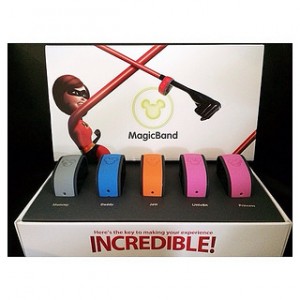It’s been 10 years this month since Fred Lee published his book “If Disney Ran Your Hospital: 9 1/2 Things You Would Do Differently.” The book offers hospital administrators and service line directors key insights for transforming their “services” to “experiences,” including:
It’s been 10 years this month since Fred Lee published his book “If Disney Ran Your Hospital: 9 1/2 Things You Would Do Differently.” The book offers hospital administrators and service line directors key insights for transforming their “services” to “experiences,” including:
- Generating loyalty by doing memorable things that patients don’t expect
- Being alert on people’s needs and taking initiative, before they ask for it
- Shifting from “our services” to the guest’s story

Courtesy of Flickr user Melissa Hillier
Over the past year, the Disney team – masters at consumer engagement – has transformed their entire experience with the addition of their MyMagic+ program. Hospitals can take this opportunity to learn from Disney’s leading-edge strategies about where experiences are going next:
- The Move To Digital
On the way out are the days of paper tickets and turnstiles. Now Disney’s “MagicBands” house park tickets, hotel room keys, personal info and credit cards all in a single RFID enabled wristband. With a swipe of a hand you can unlock the door, purchase food and gifts, or schedule a park ride. Could this be the future vision of patient ID bracelets?
- Online Planning Ahead from Home
With the “My Disney Experience” free mobile app and website, families can learn about their options and educate themselves on all the park’s offerings as they plan and proceed though their visit. Then they can schedule appointments for dinners, character greetings, rides and parades to manage their day-to-day schedule. Customers demand this kind of convenience and control in all kinds of industries already, and are looking to healthcare providers to meet them where they are. Additonally, a more prepared patient has been shown to have better outcomes.
- Personalization
Guests are asked to customize their profile with their name, birthday and favorite character. Disney uses this information to further personalize the experience. For instance, if Frozen‘s Elsa is your child’s favorite character, the program could notify her of your child’s name and that she’s a favorite right before her meet and greet for an especially memorable moment. What little personal details could you collect from your patients that nurses and other staff could use in their daily interactions to make the care feel more personal?
- Collaboration
The online program allows family and friends to work in collaboration towards a shared goal. Reminders and appointments are shared, along with “Memory Maker” pictures afterwards. If your current program is not involving family caregivers in the experience you are missing out on a key opportunity to help patients succeed.
At first glance, these may all look only like guest benefits. However, every interaction produces a bit of valuable guest-generated data, and Disney uses the data to learn more about what works and what needs improvement in their entire operation. They can better understand patterns of guest behavior and desires. They can quickly uncover dissatisfiers. They will have insights into which rides and restaurants are pulling their weight and which are not. Plus, they can better tailor each guest’s offer for their next visit based on past behavior. This kind of real-time data goes way beyond satisfaction surveys. Its wired back into the process to create a fast loop for continuous improvement.
Beyond data advantages, when guests take the time to plan in advance, it produces operational efficiencies for improved capacity and revenue growth. Disney recently stated the technology investment is beginning to pay off in: increased park capacity (more volume), visitors spending more time on property (more money), and a better experience (more loyalty). A great example demonstrating that being centered on the guest and their experience results in benefits for the provider.
Today, digital patient engagement technologies offer the same vision for healthcare: A personalized end-to-end patient-centered experience with at least one “memorable moment.” Patients preparing for surgery or working on treatment care plans from home, collaborating with friends and family online. True visibility for administration on what’s working and what’s not in their programs. Sound like a place “Where Dreams Come True”?